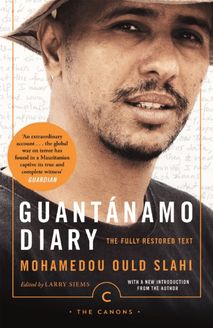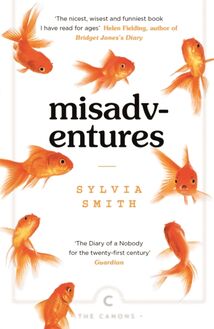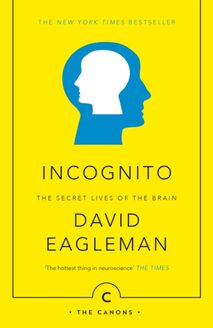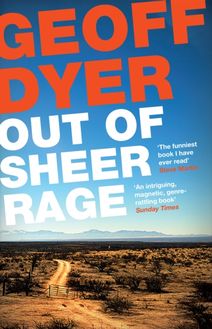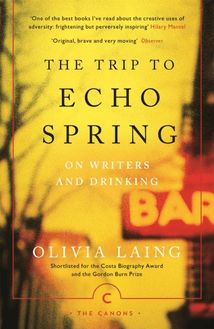-
 Univers
Univers
-
 Ebooks
Ebooks
-
 Livres audio
Livres audio
-
 Presse
Presse
-
 Podcasts
Podcasts
-
 BD
BD
-
 Documents
Documents
-
- Cours
- Révisions
- Ressources pédagogiques
- Sciences de l’éducation
- Manuels scolaires
- Langues
- Travaux de classe
- Annales de BEP
- Etudes supérieures
- Maternelle et primaire
- Fiches de lecture
- Orientation scolaire
- Méthodologie
- Corrigés de devoir
- Annales d’examens et concours
- Annales du bac
- Annales du brevet
- Rapports de stage
La lecture à portée de main
Vous pourrez modifier la taille du texte de cet ouvrage
Découvre YouScribe en t'inscrivant gratuitement
Je m'inscrisDécouvre YouScribe en t'inscrivant gratuitement
Je m'inscrisEn savoir plus
Vous pourrez modifier la taille du texte de cet ouvrage
En savoir plus

Description
Sujets
Informations
| Publié par | Canongate Books |
| Date de parution | 01 novembre 2018 |
| Nombre de lectures | 0 |
| EAN13 | 9781786894465 |
| Langue | English |
Informations légales : prix de location à la page 0,0400€. Cette information est donnée uniquement à titre indicatif conformément à la législation en vigueur.
Extrait
Herman Hesse was one of the greatest literary figures of the German-speaking world. His deep humanity and searching philosophy were developed in such masterly works as Siddhartha , Steppenwolf and Narcissus and Goldmund , which together with his poems and a number of critical works (including If the War Goes On . . . ) won him a leading place among contemporary thinkers. In 1946 he won the Nobel Prize for Literature. He died in 1962 shortly after his eighty-fifth birthday.
Also by Hermann Hesse
Fiction
Demian
Steppenwolf
Narcissus and Goldmund
The Glass Bead Game
Siddhartha
Gertrude
Journey to the East
The Prodigy
Peter Camenzind
Rosshalde
Klingsor’s Last Summer
Knulp
Strange News from Another Star
Stories of Five Decades
Pictor’s Metamorphoses
In the Old Sun
Non-Fiction
Wandering
Autobiographical Writings
My Belief
Poetry
Poems
Crisis
Hours in the Garden
This Canons edition first published in Great Britain in 2018 by Canongate Books Ltd, 14 High Street, Edinburgh EH1 1TE
canongate.co.uk
This digital edition first published in 2018 by Canongate Books
First published in Great Britain in 1972 by Jonathan Cape Ltd First published in German in 1946 under the title Krieg und Frieden: Betrachtungen zu Krieg and Politik seit dem Jahr 1914 Copyright © Fretz & Wasmuth Verlag AG, Zurich 1946 Contents included in Gesammelte Schriften , Copyright © Suhrkamp Verlag, Berlin and Frankfurt 1957 Translation © Farrar, Strauss and Giroux, Inc. 1970, 1971
The moral right of the author has been asserted
British Library Cataloguing-in-Publication Data
A catalogue record for this book is available on request from the British Library
ISBN 978 1 78689 445 8 eISBN 978 1 78689 446 5
Typeset in Goudy Old Style 11/14 pt by Palimpsest Book Production Ltd, Falkirk, Stirlingshire
Dedicated to the memory of my dear friend Romain Rolland
CONTENTS
Foreword to the 1946 Edition
O Freunde, nicht diese Töne! (September 1914)
To a Cabinet Minister (August 1917)
If the War Goes On Another Two Years (End of 1917)
Christmas (December 1917)
Shall There Be Peace? (December 1917)
If the War Goes On Another Five Years (Early in 1918)
The European (January 1918)
Dream after Work (March 1918)
War and Peace (Summer 1918)
History (November 1918)
The Reich (December 1918)
The Path of Love (December 1918)
Self-will (1919)
Zarathustra’s Return (1919)
Letter to a Young German (1919)
Thou Shalt Not Kill (1919)
Thoughts about China (1921)
World Crisis and Books (1937)
Page from a Notebook (1940)
End of the Rigi-Journal (August 1945)
Speech after Midnight (1946)
Letter to Adele (1946)
A Letter to Germany (1946)
Message to the Nobel Prize Banquet (1946)
Words of Moralising Thanks (1946)
To a Young Colleague in Japan (1947)
An Attempt at Justification (1948)
On Romain Rolland (1948)
Foreword to the 1946 Edition
Compiling this book has not been a happy task for the author. It has not awakened pleasant memories or recalled welcome images. On the contrary, every single article reminded me painfully of times of suffering, struggle, and loneliness, times in which I was beset by enmity and incomprehension and bitterly cut off from pleasurable ideals and pleasant habits. In order to alleviate these ugly shadows, which have only deepened in recent years, with a note of beauty and light, I have recalled the one beautiful and enduring thing that came to me through those struggles and torments, by dedicating this book to a noble and beloved friend. I have forgotten much of what happened in those depressing days in 1914 when the first of these articles was written, but not the day on which a note from Romain Rolland brought me, along with an announcement of his forthcoming book, a sympathetic reaction – the only one I received at the time – to my article. I now had a like-minded companion, one who like myself was alert to the bloody absurdity of the war and the war psychosis and rebelled against it, and this companion was not an unknown quantity but the man I esteemed as the author of the first volumes of Jean Christophe (no more of his work was known to me at the time), a man far superior to me in political schooling and awareness. We remained friends until his death. The geographical distance between us as well as the divergent cultures and habits of thought in which we had grown to manhood made it impossible for me to become his disciple or to learn much from him in political matters. But that was not the essential. I had come to politics very late, when I was almost forty, jolted awake by the gruesome reality of the war and profoundly horrified at the ease with which my colleagues and friends had enlisted in the service of Moloch. Already a few friends had turned away from me and I had incurred the first of those attacks, threats, and insults which in so-called heroic times conformists never fail to heap upon a man who walks alone. It was by no means certain whether I would come through or be destroyed by the conflict that transformed my hitherto rather happy and undeservedly successful life into a hell. In that situation it was a great thing, a joy and a salvation, to learn that in France, in the ‘enemy’ camp, there was a man whose conscience would not let him keep silent or participate in the prevailing orgies of hatred and morbid nationalism. Neither during the war years nor afterward did I actually discuss politics with Rolland; yet I doubt that I could have lived through those years without the warmth of his friendship. How then could I fail to think of him now?
A few words about the genesis of the present book: most of the articles connected with the war of 1914–1918 appeared in the Neue Zürcher Nachrichten . At that time (and until 1923) I was still a German citizen. Since then I have never been fully forgiven in Germany for having once taken a critical attitude toward patriotism and militarism. Though immediately after the lost war, as again today, a certain section of the German population felt very much drawn to pacifism and internationalism and occasionally echoed my ideas, I remained an object of distrust. Long before the first victories of National Socialism, I was regarded by official Germany as a suspicious and essentially undesirable character, worthy at best to be tolerated. In the period of its omnipotence, Hitler’s party gleefully avenged itself on my books, my name, and my unfortunate Berlin publisher.
A glance at the table of contents will show that I wrote ‘political’ or timely articles only in certain years. But from this it should not be inferred that I relapsed into sleep in between, and turned my back on current affairs. To my own great regret, this has been impossible for me since my first cruel awakening in the First World War. Anyone who looks into my life work as a whole will soon notice that even in the years when I wrote nothing on current affairs the thought of the hell smouldering beneath our feet, the sense of impending catastrophe and war, never left me. From Steppenwolf, which was in part a cry of anguished warning against the approaching war and which was attacked and ridiculed as such, down to The Glass Bead Game with its world of images seemingly so far removed from current realities, the reader will encounter this feeling time and time again, and the same tone may be heard repeatedly in the poems.
When I call my articles ‘political’, it is always in quotes, for there is nothing political about them but the atmosphere in which they came into being. In all other respects they are the opposite of political, because in each one of these essays I strive to guide the reader not into the world theatre with its political problems but into his innermost being, before the judgement seat of his very personal conscience. In this I am at odds with the political thinkers of all trends, and I shall always, incorrigibly, recognise in man, in the individual man and his soul, the existence of realms to which political impulses and forms do not extend. I am an individualist and I regard the Christian veneration for every human soul as what is best and most holy in Christianity. It may be that in this I partake of a world that is already half extinct, that we are witnessing the emergence of a collective man without individual soul, who will do away with the entire religious and individualistic tradition of mankind. To desire or fear such an eventuality is not my concern. I have always been impelled to serve the gods whom I felt to be living and helpful, and I have tried to do so even when I was certain to be answered with hostility or laughter. The path I was obliged to take between the demands of the world and those of my own soul was not pleasant or easy, I hope I shall not have to travel it again, for it ends in grief and bitter disappointments. But I can say without regret that since my first awakening I have not, like most of my colleagues and critics, been capable of learning a new lesson and rallying to a different flag every few years.
Since my first awakening thirty years ago my moral reaction to every great political event has always arisen instinctively and without effort on my part. My judgements have never wavered. Since I am an utterly unpolitical man, I myself have been astonished at the reliability of my reactions, and I have often pondered about the sources of this moral instinct, about the teachers and guides who, despite my lack of systematic concern with politics, so moulded me that I have always been sure of my judgement and offered a more than average resistance to mass psychoses and psychological infections of every kind. A man ought to stand by what has educated, imprinted, and moulded him, and so, after much consideration of the question, I must say: three strong influences, at work throughout my life, have made me what I am. These are the Christian and almost totally unnationalistic spirit of the home in which
-
 Univers
Univers
-
 Ebooks
Ebooks
-
 Livres audio
Livres audio
-
 Presse
Presse
-
 Podcasts
Podcasts
-
 BD
BD
-
 Documents
Documents
-
Jeunesse
-
Littérature
-
Ressources professionnelles
-
Santé et bien-être
-
Savoirs
-
Education
-
Loisirs et hobbies
-
Art, musique et cinéma
-
Actualité et débat de société
-
Jeunesse
-
Littérature
-
Ressources professionnelles
-
Santé et bien-être
-
Savoirs
-
Education
-
Loisirs et hobbies
-
Art, musique et cinéma
-
Actualité et débat de société
-
Actualités
-
Lifestyle
-
Presse jeunesse
-
Presse professionnelle
-
Pratique
-
Presse sportive
-
Presse internationale
-
Culture & Médias
-
Action et Aventures
-
Science-fiction et Fantasy
-
Société
-
Jeunesse
-
Littérature
-
Ressources professionnelles
-
Santé et bien-être
-
Savoirs
-
Education
-
Loisirs et hobbies
-
Art, musique et cinéma
-
Actualité et débat de société
- Cours
- Révisions
- Ressources pédagogiques
- Sciences de l’éducation
- Manuels scolaires
- Langues
- Travaux de classe
- Annales de BEP
- Etudes supérieures
- Maternelle et primaire
- Fiches de lecture
- Orientation scolaire
- Méthodologie
- Corrigés de devoir
- Annales d’examens et concours
- Annales du bac
- Annales du brevet
- Rapports de stage
